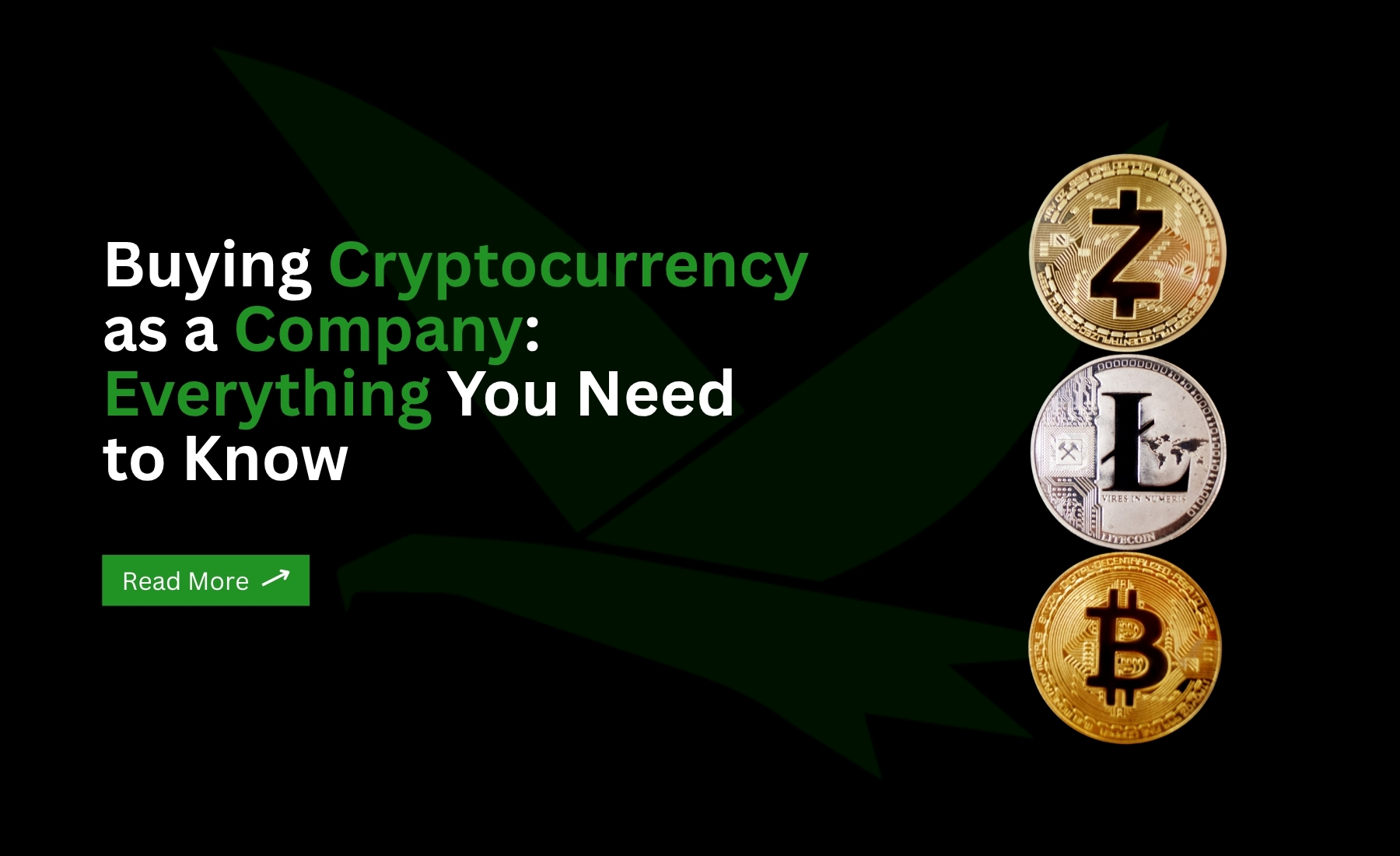How Crypto Is Changing the Way We Buy Luxury
.jpg)

Newsletters
Weekly Market Update: 28 January 2026

Insights
What Does Liquidity Mean in Crypto? A Beginner’s Guide
Liquidity in crypto measures how easily you can buy or sell assets without affecting prices. High liquidity means stable prices, reduced slippage, and faster trades—essential for smarter investing.
%20(1).jpg)
Insights
How to Build a Diversified Crypto Portfolio
Learn how to build a diversified crypto portfolio using proven strategies like the 50/30/20 model, dollar-cost averaging, and smart rebalancing to minimise risk, manage volatility, and maximise long-term gains.

Newsletters
Weekly Market Update: 21 January 2026

Newsletters
Weekly Market Update: 14 January 2026

Newsletters
Weekly Market Update: 07 January 2026

Newsletters
Weekly Market Update: 24 December 2025

Newsletters
Weekly Market Update: 17 December 2025

Newsletters
Weekly Market Update: 10 December 2025

Newsletters
Weekly Market Update: 3 December 2025

Newsletters
Weekly Market Update: 26 November 2025

Newsletters
Weekly Market Update: 19 November 2025

Newsletters
Weekly Market Update: 12 November 2025
.jpg)
Insights
SMSF Crypto Investing Australia: A Complete Guide
More Australians are adding crypto to their Self-Managed Super Funds (SMSFs) to diversify and take control of their retirement portfolios. This article outlines the benefits, risks, and compliance requirements of SMSF crypto investing — and how Uptrade helps trustees invest securely, transparently, and in full compliance with Australian regulations.

Newsletters
Weekly Report 5th Nov
.jpg)
Insights
Our Guide to Meme Coins in 2026: How to Pick a Winner
Meme coins aren’t dead — they’re evolving. This article explores how community tokens, fair-launch models, and cross-chain innovation are reshaping meme culture in 2025. From Dogecoin to new Australian projects, it shows why memes still drive crypto adoption, liquidity, and creativity — even in a maturing market.
.jpg)
Insights
Smart Contract Hacks Australia: How Exploits Happen and How to Protect Your Crypto
Smart contracts power DeFi — but even one line of bad code can lead to multimillion-dollar losses. This article explains how hacks and exploits occur, why prevention is the only real protection, and what Australian investors can do to secure their crypto with audits, custody, and smarter on-chain habits.
.jpg)
Insights
Institutional Money in Crypto: How Big Investors Are Changing the Game
Institutional investors are reshaping crypto in 2025 — bringing stability, regulation, and long-term capital to the market. This article explores how ETFs, fund strategies, and macro liquidity cycles are changing volatility, extending bull markets, and turning crypto from a speculative trade into a recognised global asset class.
.jpg)
Insights
Crypto Outlook 2025: Has the Bull Market Been Interrupted or Just Reset?
After a volatile correction, many wonder if crypto’s bull market is over — or simply catching its breath. This article examines where we are in the 2025 cycle, how institutional money and liquidity shifts shape momentum, and why patience, not panic, could define the next major move for long-term investors.
.jpg)
Insights
How Crypto Is Changing the Way We Buy Luxury
From luxury watches to high-end cars, crypto is transforming how the wealthy shop. This article explores how digital currencies enable instant, borderless payments, reduce fraud, and attract a new generation of luxury buyers. Crypto isn’t just a payment method — it’s redefining trust, speed, and exclusivity in the global luxury market.
.jpg)
Insights
Real-World Assets (RWA): The Dominant Crypto Sector of 2025
Real-World Assets (RWAs) are redefining crypto in 2025 — turning real-world value like bonds and real estate into tokenised, tradable assets. This article explains how RWAs bridge traditional finance and DeFi, why institutions are backing them, and how they’re creating the most sustainable growth story in digital assets today.
.jpg)
Insights
Crypto Market Manipulation: How Liquidity Squeezes Shape the Market
Crypto markets don’t just react — they’re often engineered through liquidity squeezes and manipulation. This article explains how big players move markets, why retail traders get caught in the swings, and how to spot warning signs early. Understanding liquidity isn’t paranoia — it’s protection.

Newsletters
Weekly Market Update: 22 October 2025

Newsletters
Weekly Market Update: 8 October 2025

Newsletters
Weekly Market Update: 15 October 2025
.jpg)
Insights
Crypto Scams Australia: A Beginner’s Guide to Safe Investing
Crypto scams in Australia are rising. Learn how social engineering and staking traps work, and what to watch out for before investing.

Newsletters
Weekly Market Update: 1 October 2025

Newsletters
Weekly Market Update: 24 September 2025

Newsletters
Weekly Market Update: 17 September 2025

Newsletters
Weekly Market Update: 10 September 2025

Insights
Buying Cryptocurrency as a Company: Everything You Need to Know
Companies can buy and hold cryptocurrency as part of their treasury strategy, with growing adoption by major corporations. Benefits include diversification, future-proofing, new revenue streams, and tax advantages. However, businesses must navigate evolving regulations and compliance requirements, making professional brokers essential for secure, efficient entry into digital assets.

Insights
How to Buy and Sell Large Amounts of Cryptocurrency (Including Bitcoin, XRP, ETH) in 2026
Buying a small amount of crypto is relatively straightforward. However, buying and selling large amounts of cryptocurrency is an entirely different ball game. When we talk about large transactions, we’re faced with unique challenges around liquidity, security, regulation and price execution.

Newsletters
Weekly Market Update: 3 September 2025

Newsletters
Weekly Market Update: 27 August 2025

Newsletters
Weekly Market Update: 20 August 2025

Newsletters
Weekly Market Update: 13 August 2025

Newsletters
Weekly Market Update: 6 August 2025

Newsletters
Weekly Market Update: 30 July 2025

Newsletters
Weekly Market Update: 23 July 2025

Newsletters
Weekly Market Update: 16 July 2025

Newsletters
Weekly Market Update: 9 July 2025

Newsletters
Weekly Market Update: 2 July 2025

Newsletters
Weekly Market Update: 25 June 2025

Newsletters
Weekly Market Update: 18 June 2025

Newsletters
Weekly Market Update: 11 June 2025

Newsletters
Weekly Market Update: 4 June 2025

Newsletters
Weekly Market Update: 28 May 2025

Newsletters
Weekly Market Update: 21 May 2025

Newsletters
Weekly Market Update: 14 May 2025

Newsletters
Weekly Market Update: 7 May 2025

Newsletters
Weekly Market Update: 27 March 2024

Newsletters
Weekly Market Update: 3 April 2024

Newsletters
Weekly Market Update: 10 April 2024

Newsletters
Weekly Market Update: 17 April 2024

Newsletters
Weekly Market Update: 24 April 2024

Newsletters
Weekly Market Update: 1 May 2024

Newsletters
Weekly Market Update: 8 May 2024

Newsletters
Weekly Market Update: 15 May 2024

Newsletters
Weekly Market Update: 22 May 2024

Newsletters
Weekly Market Update: 29 May 2024

Newsletters
Weekly Market Update: 6 June 2024

Newsletters
Weekly Market Update: 12 June 2024

Newsletters
Weekly Market Update: 19 June 2024

Newsletters
Weekly Market Update: 26 June 2024

Newsletters
Weekly Market Update: 4 July 2024

Newsletters
Weekly Market Update: 10 July 2024

Newsletters
Weekly Market Update: 17 July 2024

Newsletters
Weekly Market Update: 24 July 2024

Newsletters
Weekly Market Update: 31 July 2024

Newsletters
Weekly Market Update: 8 August 2024

Newsletters
Weekly Market Update: 14 August 2024

Newsletters
Weekly Market Update: 21 August 2024

Newsletters
Weekly Market Update: 28 August 2024

Newsletters
Weekly Market Update: 4 September 2024

Newsletters
Weekly Market Update: 11 September 2024

Newsletters
Weekly Market Update: 18 September 2024

Newsletters
Weekly Market Update: 25 September 2024

Newsletters
Weekly Market Update: 2 October 2024

Newsletters
Weekly Market Update: 9 October 2024

Newsletters
Weekly Market Update: 16 October 2024

Newsletters
Weekly Market Update: 23 October 2024

Newsletters
Weekly Market Update: 30 October 2024

Newsletters
Weekly Market Update: 6 November 2024

Newsletters
Weekly Market Update: 13 November 2024

Newsletters
Weekly Market Update: 20 November 2024

Newsletters
Weekly Market Update: 27 November 2024

Newsletters
Weekly Market Update: 4 December 2024

Newsletters
Weekly Market Update: 11 December 2024

Newsletters
Weekly Market Update: 18 December 2024

Newsletters
Weekly Market Update: 30 April 2025

Newsletters
Weekly Market Update: 8 January 2025

Newsletters
Weekly Market Update: 15 January 2025

Newsletters
Weekly Market Update: 22 January 2025

Newsletters
Weekly Market Update: 23 April 2025

Newsletters
Weekly Market Update: 29 January 2025

Newsletters
Weekly Market Update: 12 March 2025

Newsletters
Weekly Market Update: 9 April 2025

Newsletters
Weekly Market Update: 16 April 2025

Newsletters
Weekly Market Update: 5 February 2025

Newsletters
Weekly Market Update: 26 February 2025
Explore the latest market update from our Research and Insights Team
.jpg)
